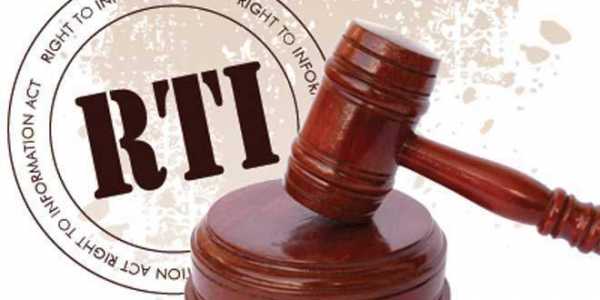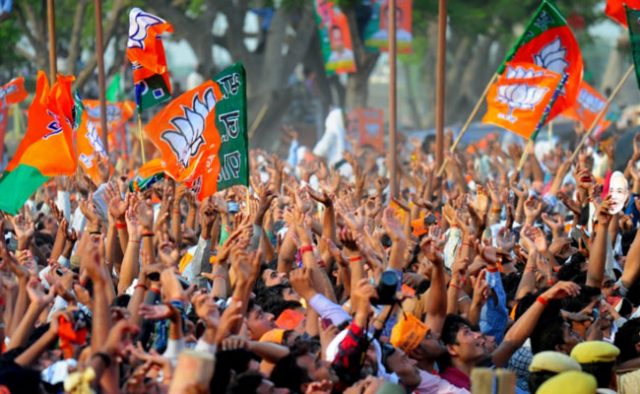The question continuously arises. How much do political parties spend? Where do they get the funds from? How much money do parties mobilise?
In a country where more than three-fourths of Lok Sabha MPs are multi-millionaires, the money influence on politics needs a proper controlling mechanism.
In a surprising turn of events, the Election Commission has gone ahead and said that political parties are out of the ambit of the Right to Information Act which is contrary to the Central Information Commission’s directive bringing six national parties under the transparency law.
The poll panel’s order came amid a petition filed by Pune-based Vihar Dhuvre, who asked the details of the donations collected by six national parties including Bharatiya Janata Party, Congress, Communist Party of India (Marxist), Bahujan Samaj Party, Nationalist Congress Party, Communist Party of India and Samajwadi Party through the newly introduced electoral bonds.
“Requisite information is not available in the Commission. This is related to political parties and they are out of the purview of the RTI. They may submit information of donation/amount collected through by Electoral bonds in their contribution report for the financial year 2017-18 in the ECI for which the due date is September 30, 2018,” the Central Public Information Officer has said.
All the six national political parties were brought under the Right to Information Act by a ruling of the Central Information Commission on June 3, 2013.

Also Read: Smriti Irani: Crisis And Controversies Makes Her Fall Prey To Cabinet Reshuffle, Again
Transparency activists claim no merit in the order passed by Election Commission
“When the Central Information Commission has declared six national political parties as a public authority, the Election Commission cannot take a position contrary to that unless the order of the CIC has been overturned by the Supreme Court or High Courts. The order of EC has no merit,” former Chief Information Commissioner A.N. Tiwari told PTI.
Noted activist Venkatesh Nayar also said that EC “exceeded its limits in giving this order”. He pointed out that “the June 2013 order of the CIC bringing six national political parties under the RTI Act remains in force even if the political parties do not obey it. It has not been stayed or set aside by any court. Therefore, as far as national political parties are concerned they are squarely covered under the RTI Act.”
He added that the Election Commission of India and the Central Public Information Officer is bound to make disclosure of all the information of the state and national parties which fall under the RTI Act rather than stating that these political parties are out of the preview of the RTI Act.
Where do political parties stand on RTI?
Interestingly, political parties have not challenged this order in court and have refused to entertain any such RTI applications made against them in accordance with the order passed in 2013.
Several activists have appealed to the Supreme Court on the grounds of non-compliance of the CIC order but the matters are still pending.
While political parties have different views on most issues, there seems to be a strong consensus amongst all of them in regards to opposing the RTI.
Most parties argue on the fact that they are already making their donations public by placing them before the income tax authorities. While they were required to disclose any donations above Rs 20,000 this has been revised to Rs 2,000 which surely have made things hard for all parties.
As far as the Congress is concerned, they argued that calling political parties public authorities was an “erroneous” decision.
When it comes to the RTI Act, the Central Information Commission is the only appellate authority which can declare a body as a public authority if it is assured that the organisation fits into the criteria for being under the Right to Information Act.
The Secretary in charge of the legal department of Congress, K.C Mittal went ahead and questioned the power of the CIC saying it was “neither a court nor is competent to exercise plenary jurisdiction”.
In August 2015, it was the Modi led government who opposed the move to bring political parties under the RTI act resulting in an adverse effect on their internal working and political functioning.

It is implied that political parties have for long been resisting the RTI to conceal their donations. This also proves how our existing laws and rules to bring transparency have miserably failed.
Big corporates and business houses have managed to exercise their control over political parties to fulfill their own interests. This poses a big question on the autonomy of political parties representing the people of our country.
Image Credits: Google Images
Sources: The Hindu, Economic Times, ANI
You would also like to read:
http://edtimes.in/2018/05/every-house-has-a-cancer-patient-in-this-village-close-to-tuticorin-sterlite-plant/































